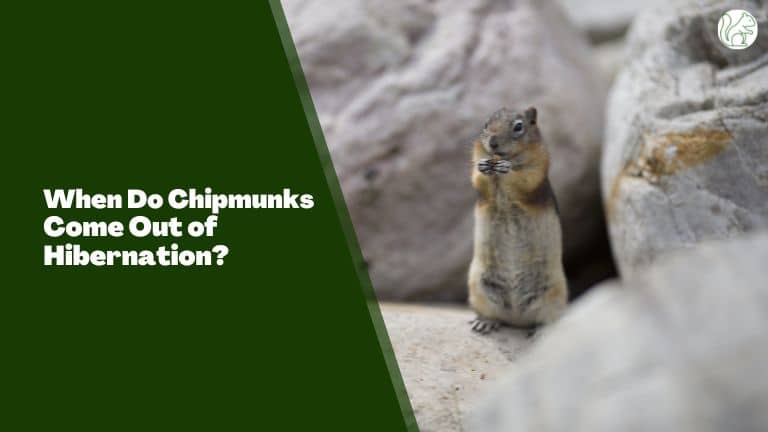It’s good news that all the chipmunks are on break aka hibernation mode. But you need to know the arrival time of them to be prepared. They will come to eat your crops again which you don’t want.
So, when do chipmunks come out of hibernation? It’s in the spring, the season of joy and love. They come out from the inactive mode and look for mating partners to complete the mating things.
To get the point better, I’ll just describe the time when they come out of hibernation plus show some relative details, so you don’t miss anything. Here I Go!

Time For Chipmunks To Come Out of Hibernation
Just like other rodent creatures, the chipmunks also get into activation mode in the early spring season. Most of the time the hibernation season lasts for around 10 days to 3 months based on the types of chipmunks.
To put it clearly, the Common (Siberian) and Eastern chipmunks come out of hibernation for around 20 to 40 days. On the other hand, the Least chipmunks usually do not go into hibernation, unlike most types.
They simply pick the spring season to get back the energy when the outer temperature is close to 21.1 °C to 11.1 °C. As this is the period of their mating works, they get busy finding a proper mate.
It’s the period when you can lure or catch them easily. To do it, here’s how to lure a chipmunk out of hiding.
The Month for Chipmunks To Come Out of Hibernation
It’s in between late March to early June as this is the time for chipmunks to come out of hibernation mode.
During these months, you’ll locate them frequently nearby your garden or crops. Plus, there’ll be some tunnels underground close to the garden which is where do chipmunks live.
You’ll mostly locate chipmunks in North America, Mexico, and Canada. As it’s clear that they come out in the early spring season, it’s still conflicting to state a month unless you match it with geographic location.
Here are the details on months when chipmunks come out of hibernation in 3 majorities of countries:
- In North America: March 20 to June 10
- Mexico: March 21 to May 10
- Canada: March 01 to May 01
Chipmunks Can Suddenly Disappear!
No matter where do chipmunks nest is, you’ll notice sometimes they keep on disappearing from your garden. To know the reasons, look beneath:
Reason #1: Predator Animals
When chipmunks fight with predator creatures like hawks, it can happen that they die and disappear forever. Or they run to a safe zone to get shelter and won’t appear until the chipmunks see no predators.
Reason #2: Hot Summer
The burning temperature weather is another reason why the chipmunks tend to live under their nest. You’ll not see them nearby your garden and plants until the sun’s temperature drops.
In fact, they come out of the tunnel to check if the weather is okay for them to roam around or not. And that’s why you can’t see them!
Reason #3: Shift to New Home
As mommy chipmunks give birth to their kids, they can look for new tunnels to live safely. It doesn’t happen often unless the number of pups is more than 6 as they need bigger space to survive.
Chipmunks Have Places To Sleep in The Winter
In the winter when the temperature is 0.7 °C to – 15 °C, the chipmunks sleep under the complex burrow in a sleeping chamber aka nest. It’s where they take a rest during the cold period which is made underground.
The location is 6 feet deeper and 20 to 30 feet long to ensure the needed warmth even in the freezing temperature.
Chipmunks sometimes Come Out During the Winter
Yes, the chipmunks do come out of their burrow even if the weather is freezing cold. Unlike other rodent animals, they do not fall asleep for a long period.
The chipmunks go out to gather food, water, and other necessary stuff to store in their complex tunnel.
Plus, when they wake up from hibernation, the chipmunks ensure their body to go normal temperatures and eat food to survive. During that time, they also complete their urination, defecate, and other things.
Wrap Up
Folks often think about when do chipmunks come out of hibernation to prepare bait in order to get rid of them.
Some use scents that they dislike getting rid of them while others try to capture the chipmunks via live trap to release them in a distant zone.
Whatever you do with them, just ensure to use techniques that are kind and human. Hope you like the above pieces of information and find this content helpful. Catch You on The Next Guide!
